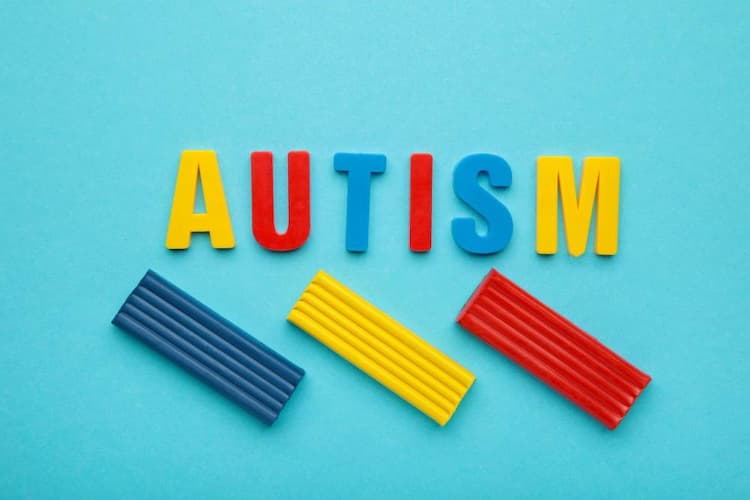Obsessions OCD: types, causes, coping methods, and treatment options

Medically Reviewed By
Dr. Ragiinii Sharma
Written By Srujana Mohanty
on Jun 13, 2022
Last Edit Made By Srujana Mohanty
on Mar 14, 2024

Obsession or Obstructive-Compulsive Disorder (OCD) occurs in both men and women. In India, the cases of OCD problems are around 0.6%. However, these statistics have increased significantly after the COVID-19 pandemic hit the country. According to recent reports, the obsession with contamination and unacceptable thoughts has increased among people, especially the young generation. This sudden increase in the numbers significantly contributes to the development of mental illness.
So in this article, let us discuss in detail about obsession, its types, causes, methods to manage OCD, and its treatment. This will help you in managing your condition or your loved ones more adequately.
What are the types of OCD?
Obsession is generally anxiety-driven and involves feelings like fear of harm, bad luck, or sickness. Obsession can be of different types and can present itself in different in different individuals.
Perfectionism
People who have perfectionistic obsessive-compulsive disorder generally have a fear that they would do something wrong or might make mistakes. Perfectionism can also be scrupulosity, that is, you adhere to strict ethical, religious, and moral values.
The characteristics of perfectionistic OCD include:
- Being organised and symmetrical
- Neatness
- Abiding by a fixed routine, rules, and directions
- Completing assigned tasks with perfection
- Always have a feeling that the things should be kept in place
Relational
Relational or relationship obsessive-compulsive disorder (ROCD) occurs when people are more worrisome about what is right and what can go wrong in a relationship. The major symptoms of OCD include:
- Continuously doubting their own or their partner's feelings
- Suspecting if their partner is the right one for them or not
- Comparing their exes with their current partner
- Preoccupied with the flaws of your partner
- Always doubting whether or not their partner may cheat on them
Contamination
People with contamination obstructive-compulsive disorder are the ones who like to stay clean physically and mentally. Such people often fear that there may be dirt, germs, bacteria, or chemicals that may contaminate their skin or evil thoughts that can contaminate their morals.
Some of the symptoms of contamination obsession include:
- Excessive washing of hands and skin
- Cleaning household stuff frequently
- Follow a strict and rigid diet
- Avoid socialising with other people at parties and public places
- Set compulsive rituals for themselves like praying, repeating phrases or counting
Causing harm
Some people with the obstructive compulsive disorder have a fear that their actions may harm them or the people around them. Such people constantly have a battle within them. According to the National Health Society (NHS), some of the common fears that these people have include having a car accident, dropping a baby, making someone sick, or forgetting to turn off the household appliances that may lead to electrical accidents.
Intrusive thoughts
Intrusive thoughts refer to thoughts that might be dangerous, frightening, repulsive, or inappropriate for the individual. Intrusive thoughts are common in around 80-90% of people. But for OCD patients, these thoughts are persistent and cause anxiety. Some examples of intrusive thoughts include aggressive impulses, unwanted violent or sexual imagery, and religious blasphemy.
What are the causes of OCD?
Obsessive-compulsive disorder is generally caused due to environmental or genetic factors. The main causes of OCD include:
- Genetics: Around 45 - 65% of the cases of OCD have symptoms that are caused due to genetic factors.
- Upbringing: The parents who are very anxious or overprotective may create such an environment in the house that causes the child to develop OCD.
- Trauma: Any trauma like betrayal or abuse may lead to OCD. such people have high chances of developing post-traumatic stress disorder (PTSD) as well.
- Brain abnormalities: Hyperactivity in certain areas of your brain involved in functions like emotional regulation, impulse control, and decision-making can also lead to OCD.
- Stress: OCD can also develop if a certain stressful event has occurred during the life of an individual, especially during childhood.
How to overcome OCD?
If you have an obsession and you feel it is out of your control, you must get help from others to control and manage the symptoms of OCD. certain ways that can help you in coping with obsession include:
- Avoid drugs and alcohol: Drugs and alcohol abuse can be one of the reasons for worsening your symptoms of obsession. Therefore, avoid drug and alcohol use if you have OCD.
- Find support: People with OCD must take assistance or seek help from others. Try participating in group activities and socialising with other people to keep your obsession in check.
- Sleep: Try having a good and deep sleep. Insomnia often exaggerates your symptoms of OCD. Practising healthy sleep habits is essential to keep a check on your OCD symptoms.
- Regular exercise: Regular physical activity helps in burning out excess energy from your body. This prevents your mind from thinking about different obsessions that you may encounter.
- Manage stress: Chronic stress is another factor that can lead to triggering your symptoms of stress or making them worse. Therefore, try to avoid stress and manage it efficiently.
- Practice mindfulness: Practice yoga and meditation to keep your mind calm which will help you in taking the right decisions and keeping your obsessive thoughts away.
- Use a self-help program: There are several self-help programs like online exercises and workbooks available over the internet which can help you to monitor and manage your obsession.
How to get rid of OCD?
The symptoms of obsession can be treated and managed efficiently with the right treatment. These treatments will help reduce your anxiety, thereby improving the quality of your life. The major treatment options available for people with OCD include:
Exposure and Response Prevention therapy (ERP)
ERP is a cognitive behaviour therapy (CBT) that confronts your obsession so that you can learn how to resist your urge for compulsive behaviour. Evident and long-term improvements are seen in around 50-60% of people who have OCD symptoms.
OCD medications
Apart from psychotherapy, antidepressant drugs can also be prescribed to you for the treatment of OCD and its symptoms. The most commonly used antidepressants include SSRIs, that is, selective serotonin reuptake inhibitors.
Takeaway
Obsession is a common condition that should be efficiently managed so that its symptoms do not worsen the condition in the future. Now that you know obsession, its types, methods to cope with obsession, and its treatment, you can better analyse your condition and take the necessary steps.
Frequently Asked Questions (FAQs)
-
Can OCD ever get completely treated?
The symptoms of OCD may come and go with time. However, you can manage these symptoms better and be more aware of how to handle them.
-
Is OCD a form of depression?
Well, no OCD may or may not be a part of depression. However, depression is always a part of OCD.
-
Is OCD an anxiety-related disorder?
Yes, obstructive-compulsive disorder is an anxiety disorder that is marked by unwanted or recurrent thoughts and repetitive behaviors.



